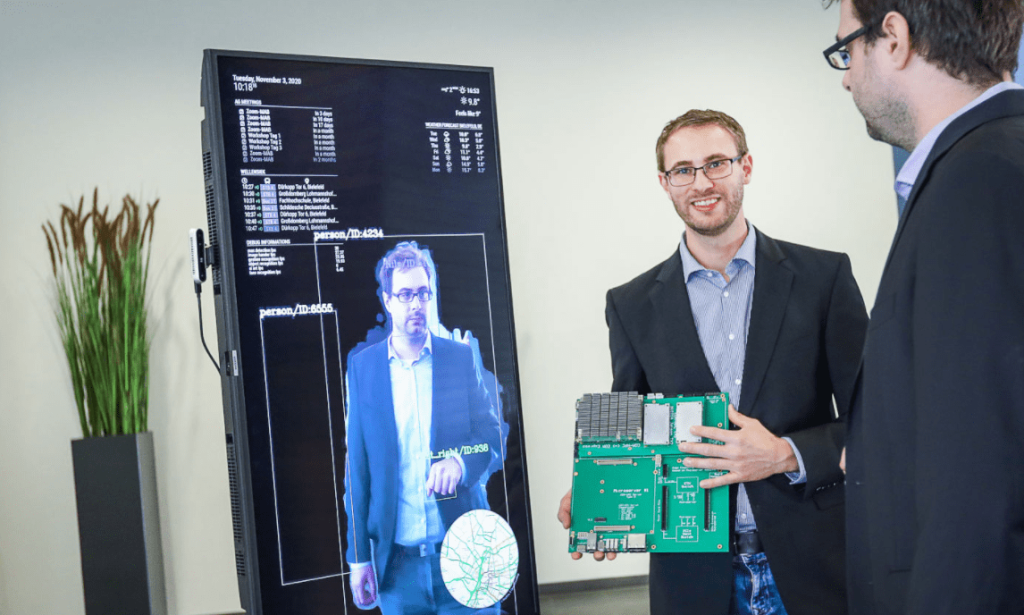VEDLIoT project promises secure and privacy-focused facial recognition
An EU-funded project, VEDLIoT (Very Efficient Deep Learning in IoT), has been introduced to address the challenges associated with implementing deep learning in IoT systems. The VEDLIoT project developed smart home solutions, especially in facial recognition systems, equipped with local processing capabilities for data protection and privacy. The project is designed to provide a secure and privacy-focused solution for various industries through intuitive interaction, local AI processing, and efficient AI hardware accelerators.
Artificial intelligence and the Internet of Things have become powerful technologies enabling companies to innovate their product offerings and improve customer experience. The convergence of AI and IoT (AIoT) has reshaped how enterprises collect, analyze, and respond to edge data. While deep learning, a subset of AI that uses artificial neural networks, is seen to be ideal for IoT applications to make intelligence decisions, process large amounts of data, and extract valuable insights, they face challenges related to efficiency and safety.
Selecting the right specialized AI accelerators
VEDLIoT uses specialized hardware accelerators to optimize energy consumption in IoT devices and improve the efficiency of deep learning models, making them faster and more scalable for edge applications. In the market, a wide variety of AI accelerators are designed for different applications. These accelerators can be found in devices ranging from small embedded systems with limited compute power to high-power cloud computing platforms.
Selecting the right accelerator for a specific facial recognition application can be complex. However, the VEDLIoT project takes on part of this responsibility by thoroughly assessing and evaluating various architectures, including GPUs, field programmable gate arrays (FPGA), and application-specific integrated circuits (ASICs). The project examines these accelerators based on their performance and energy consumption to determine their suitability for the specific use case.
Optimizing deep learning models
Traditionally, deep learning models have redundancy, meaning they have more parameters and complexity than necessary for achieving a specific level of accuracy. Reports suggest that the deep learning models can sometimes be compressed to a size that is 49 times smaller than the original size without affecting the accuracy. However, most existing research on model compression does not consider the target hardware on which the model will run.
For example, Nvidia Jetson modules, considered well-suited for facial recognition systems, would require compression of machine learning models with the consideration of this specific hardware to translate into more efficient hardware execution. VEDLIoT addresses this challenge by adopting a hardware-aware approach to model optimization that ensures the optimization process is tailored to the target device.
VEDLIoT uses the EmbeDL toolkit for optimizing deep learning models as it focuses on hardware specific constraints and characteristics. This allows developers to perform various optimization techniques such as compression quantization and pruning (removing unnecessary parameters). In facial recognition systems, smart cameras have minimum resources on board for processing and storage. To serve this market segment the EmbeDL helps minimize resource utilization while maintaining high inference accuracy.
Security within IoT systems
The benefit of reduced latency can come at the cost of security of the system, especially for facial recognition use cases. As the edge infrastructure lacks an abundance of computational components, implementing robust security, encryption and authentication mechanisms becomes a challenge with image-based processing being the primary operation of the system. Hence, there is a need for the integration of dynamic systems, which can optimize component selection along with efficiency in energy consumption.
VEDLIoT addresses edge security with its strong emphasis on security and safety. To achieve this, the project utilizes trusted execution environments, such as Arm TrustZone. These TEEs create secure and isolated environments within the hardware to protect critical infrastructure from unauthorized usage. In the case of facial recognition, smart cameras and edge devices storing biometric information used in facial matching algorithms are prone to privacy breaches and security attacks if not secured.
For TEEs like Arm TrustZone, VEDLIoT makes sure that facial recognition data is processed within a secure enclave, preventing unauthorized access and tampering. This hardware-based security approach provides a robust defense against potential threats, including data breaches and cyberattacks. Moreover, the project goes a step further by introducing trusted runtimes like Twine for Arm TrustZone, which simplifies software development within these secure environments.
In addition to this, the use of TEEs with WebAssembly provides hardware-independent protection against malicious interference. This protection ensures that the biometric data and deep learning models are secured inside the edge infrastructure. Also, the use of a specialized architectural framework helps define, synchronize, and coordinate requirements for AI components.
The future
The VEDLIoT project addresses the growing concern around implementation of deep learning models on IoT systems. The platform is equipped with optimized hardware components and accelerators designed for IoT applications. It also covered a wide range of deployment scenarios from embedded IoT devices to edge devices and even cloud-based applications.
In the case of facial recognition systems, VEDLIoT project not only focuses on model optimization but also puts emphasis on safety and security throughout its framework. The project aims to bring power efficient computing to the network edge.







